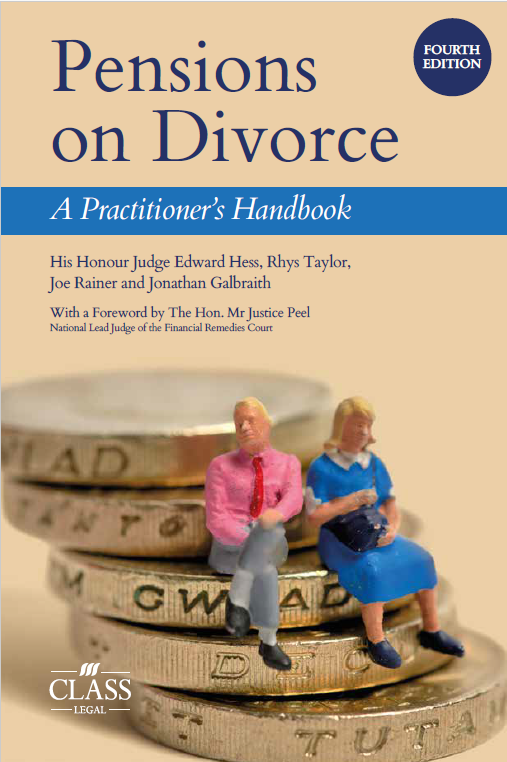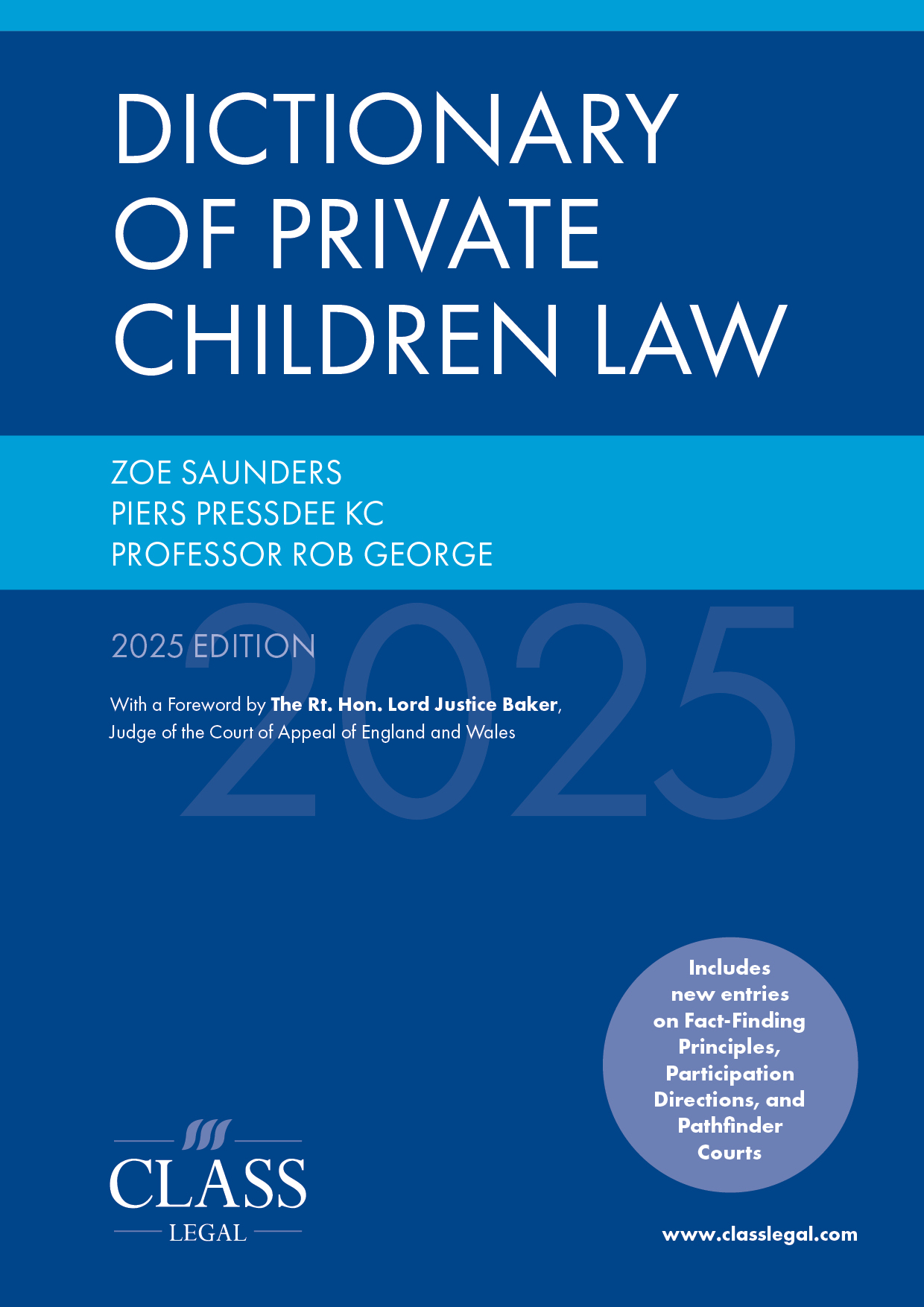
To Deduct or Not to Deduct: That Remains the Question After Collardeau-Fuchs
Published: 05/09/2023 08:38

White v White [2000] 2 FLR 981 is rightly known for its fundamental reset of the principles that govern financial remedy claims. One perhaps lesser commented upon aspect of Lord Nicholls of Birkenhead’s speech is at p. 996 when he referred to Mrs White’s criticism of the use of net values after deducting estimates of the costs of sale and CGT likely to be incurred if the parties’ farms were sold given that Mr White still owned and used them. Lord Nicholls rejected the submission that the use of net values in this situation should be discontinued. He stated that ‘there can be no hard and fast rule, either way’ but that ‘[w]hen making a comparison it is important to compare like with like, so far as this may be possible in the particular case’ and in the present case a comparison based on net values was fairer because under her award Mrs White had money to invest or use as she pleased and Mr White’s equivalent, as a cash sum, was the net value of the farms as they had to be sold before he could have money to invest or use in other ways.
In K v L (Ancillary Relief: Inherited Wealth) [2010] 2 FLR 1467 Bodey J did not follow this approach (at least not in full) when dealing at [57]–[60] with the treatment of latent CGT. On the husband’s behalf it was argued that this should not be taken off the gross value of the assets because the wife’s shares were held offshore, and they never needed to be brought onshore thus attracting CGT as she could meet her needs from dividends remitted onshore and taxed without touching the capital. On the wife’s behalf it was said that CGT should be taken off as being the entirely conventional practice and because the wife should be entitled to access her resources how she liked, as and when she might wish to do so. So the only way to compare like with like was by the use of net figures.
Bodey J cited from White v White as above before concluding at [60] that although the likelihood of the wife ever actually having to pay out significant amounts of CGT on her shares was a very modest one, as it would require a volte-face in respect of both her stated intentions and her historic lifestyle, it was equally the case that in the fullness of time and as things turned out she might wish to bring some of her assets into this jurisdiction as she had done on some occasions in the past, thus attracting CGT on the proportion remitted. He acknowledged that ‘[t]here is no way of anticipating this in any informed way’ and ‘[s]o taking a broad brush, I would deduct latent CGT on an arbitrary £10m worth of her shareholding’. He concluded that this:
‘discretionary although speculative approach is open to me, as there is “no hard and fast rule” and because I think it is the best way to produce a fair and realistic determination on the issue.’
Bodey J returned to this issue in X v X (Financial Remedies: Share Value Discount: Date for Computation of Assets) [2017] 2 FLR 840 when considering the quantum of discount on the husband's shares to reflect the pivotal position which he was seen to hold as regards the future prospects of his company. Having determined the discount on the shares to be 8% whether sold or transferred to the wife in specie he went on at [71] to state that this discount needed to be factored in regardless of whether or not the shares actually came to be sold or transferred so as to meet the wife's award and even if the husband ended up borrowing against his shares to fund the lump sum. In reaching this conclusion he accepted the husband’s argument that, for the foreseeable future, his shares could not be turned into cash (except by borrowing against them) without this likely discount and that the husband should be regarded as free to sell his shares if in the event he decided he wished to do so.
Bodey J stated that this was similar ‘although obviously not identical’ to the necessary costs involved in realising property such as costs of sale and CGT. He stated that his decision in K v L (Ancillary Relief: Inherited Wealth) ‘was a decision on different facts to do with bringing [the shares] onshore at some time in the future, as to which the owner would have had a free choice not tied to meeting a court order’. He also referred to the quotation from White v White above and added that ‘deduction is conventional in practice in litigation of this type in this Division’.
Most recently in Collardeau-Fuchs v Fuchs [2022] EWFC 135 (14 November 2022), Mostyn J was required to consider the issue of latent US capital gains tax on two properties. The husband argued (at [64]) that ‘in accordance with authority and convention’ these latent taxes should be allowed when calculating the net proceeds of sale to be shared with the wife. The wife argued that this was ‘completely unreal because the husband will never pay such taxes, not least because he has millions of dollars of unused losses which he will be able to apply to extinguish the tax liability were he ever to sell the properties’. The husband’s response to that was that a tax loss was no different from cash in the bank, that money is fungible, it can take many shapes and forms and his tax loss was an asset, a chose in action, just as real as a piece of property or money in the bank. As the parties’ PNA did not require him to use cash to reduce debt on properties, by parity of reasoning he should not be required to use an asset, namely a tax loss, to reduce a specific debt on the two properties, namely latent taxes.
Mostyn J again cited from White v White as above before stating at [66] that:
‘[f]rom this dictum a convention has arisen whereby latent tax which cannot be avoided, and which will likely be payable when a property is sold, is almost invariably deducted when computing the value of a property to go on the asset schedule.’
He then referred to his own decision in DR v GR & Others (Financial Remedy: Variation of Overseas Trust) [2013] 2 FLR 153 where at 50 he had stated that:
‘[a]lthough the normal rule as stated in White v White [2001] 1 AC 596 is that latent capital gains tax should be allowed the court must nonetheless be realistic. I consider it reasonable to allow this latent sum but I will bear in mind that it may be a long time before any such tax is paid by the husband (or anyone else) and that in the meantime the husband will continue to have the use of the assets.’
Mostyn J then referred to K v L per Bodey J. Thereafter at [68] he referred to his own decision in BJ v MJ (Financial Remedy: Overseas Trusts) [2012] 1 FLR 667 where he stated at [69] that he had not taken into account the tax that the husband would pay were he to receive all the assets and remit them onshore as:
‘[t]his is completely unreal. The whole point of the structure is to avoid paying tax, and H has never remitted any offshore income. Mr Castle argues that not to include it would result in an unfair imbalance as W would be able to remit onshore and would therefore have more freedom with, or at least fewer strings attached to, her money. But in order to have the benefit of the money here H does not need to remit income.’
At [69] Mostyn J then said that ‘the usual convention should apply’ as:
‘[t]his is not a case where the court is blinding itself to a truth that a party will never pay such latent tax because he has entered into arrangements the whole object of which is to avoid paying that very tax.’
The taxes were:
‘very real, and the husband will have to pay them with money or with other assets in the shape of tax losses. The wife would be given very short shrift if she suggested that the calculation of the net value of these two properties should ignore the latent taxes because the husband has money in the bank and could just pay off the taxes. I agree with Mr Chamberlayne KC that there is no difference in principle or substance between the husband paying a tax debt in cash or eliminating it by deploying a loss.’
The conclusion from the above cases would appear to be that the latent tax will be deducted in the computation exercise unless it would be ‘unreal’ to do so. The main (if not the only) example of such unreality may be where a party will never pay such latent tax because they have entered into arrangements the whole object of which is to avoid paying that tax. However, the line between this argument and the contrary one – namely that it does not compare like with like as that party cannot (say) remit the monies onshore without paying such taxes and that party should be entitled to access their resources how they like and as and when they might wish to do so – is likely to be a difficult one to ascertain in any particular case. One consideration, but on the authorities clearly not the only one, is whether the owner of the asset with the latent tax is left with a free choice as to whether to crystalise that tax not tied to meeting a court order.











